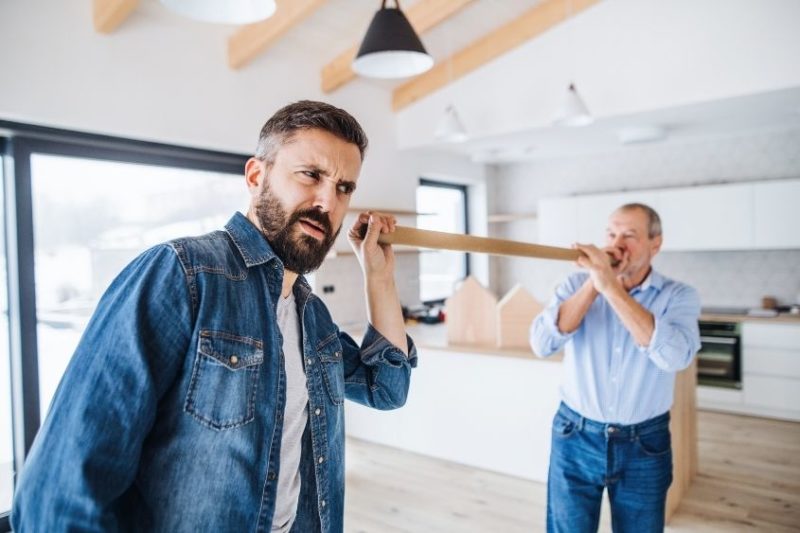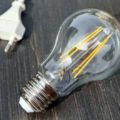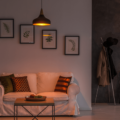Dispelling LED myths.
According to some recent research by comparethemarket.com, it’s been proven that if you switch from halogen bulbs to LED light bulbs, you could make a significant financial saving.
Yet, despite the positive impact LED light bulbs have on the environment, and the money you could save, there’s still one or two myths around LED light bulbs that need quashing.
And yes, you guessed it, we’re on hand to do just that…
LED bulbs are too expensive to buy

It’s true to say that initially, you may pay more for your LED bulbs upfront – but the bonus is that they’re getting cheaper year-on-year.
The average price of 60W-equivalent LED bulb is dropping, and LED light bulbs usually last a lot longer than the halogen alternative, which means you’ll be buying replacements much less frequently.
LEDs should last for at least 15,000 hours, the equivalent of two hours of use each day for 20 years. This is far, far longer than the lifespan of a halogen bulb.
LED lights need time to warm up

This simply isn’t true. Unlike fluorescent lamps and energy-saving ones that come on slowly or may even flicker somewhat, LEDs shine in full light as soon as they’re switched on.
Another bonus is that they can be switched on or off continuously without shortening their lifespan.
LED light bulbs installation is complicated

The good news here is that most of our LED light bulbs are retro-fit and should slot in easily into the existing fittings. It’s worth checking the dimensions before, because some older LED bulbs can be bigger than halogen ones, so may not suit/fit the light fittings or shade.
The important thing to remember here is that LED lights are not new and they’ve been on the block long enough for the manufacturers to know how and where to fit the best.
LED light is not bright

We won’t go into the lumen and watt ratio here. We’ll leave that for another time.
But, you may have heard the story that LEDs aren’t as bright as halogen bulbs. And, this would be the case in the very early range, but not anymore.
If you’ve ever touched a lit halogen bulb, you’ll remember just how hot they can get. In fact, halogens waste 80% of their energy as heat, with only 20% being used for light.
LEDs are completely the opposite though. They use 80% of their energy as light, with the other 20% escaping as heat, and depending on what LED you buy, it will generally be brighter than a halogen bulb.
All LED light bulbs shine with very white light

In the early days, first LED bulbs were very white. Things have moved on significantly though and today they are also available in an array of ‘shades of white’ from warm yellow through to a lighter cool blue. The best way to check this is to look for the ‘colour’ in the specifications tab on each product listing. Additionally, you can find this information displayed on the packaging.
So there you have it. If you’d like to discuss any of the points we raise in this blog, get in touch with a member of our LED specialist team today. It would be great to hear from you.





I have several light fittings around the house which have between three and five lights per fitting. If snd when an led eventually stops working how will I know which replacement led to purchase to blend in with the colour and brightness of the remaining leds?
Often when a halogen bulb blows it causes the rcd to cut out; is this less likely when an led ceases to function?
Hi Alan, Thanks for the questions – As an LED light bulb ages it can become less bright and may even change colour slightly due to a deterioration in the phosphors used to create it’s colour. With this in mind, you may find it very difficult to blend new light bulbs with old ones and get an exact look-a-like appearance. However, this does depend on the quality of components used in the LED light bulb, and new lightbulbs by the same manufacturer and model number may look identical to aged bulbs. It is trail and error unfortunately. If this is important to you, you may want to budget for replacing all light bulbs in the fitting at the same time. Just for the record, light bulbs losing their brightness and colour is not unique to LED light bulbs but to all light bulb technologies. Even old-style incandescent light bulbs used to have their life span measured by the L70 model – that is the time in hours when the light bulb performs at 70% of it’s original brightness as when new.
For your second question; it all depends on the sensitivity of the RCD and the way in which an LED might fail; but as LED’s draw much less power, the chance of tripping a RCD is considerably reduced.
When LED bulbs first became available I would buy a couple and swap them for halogen or ordinary filament bulbs. Eventually completing the whole house. When we moved three years ago I left those LED’s for our buyers. The new house had halogens in the kitchen ceiling and old type tubes over the counters. The rest of the house had various lighting systems but no LED’s. All were swapped out LED’s and the kitchen is now nice and bright and after nearly four years nothing has needed to be changed. I’m very pleased.